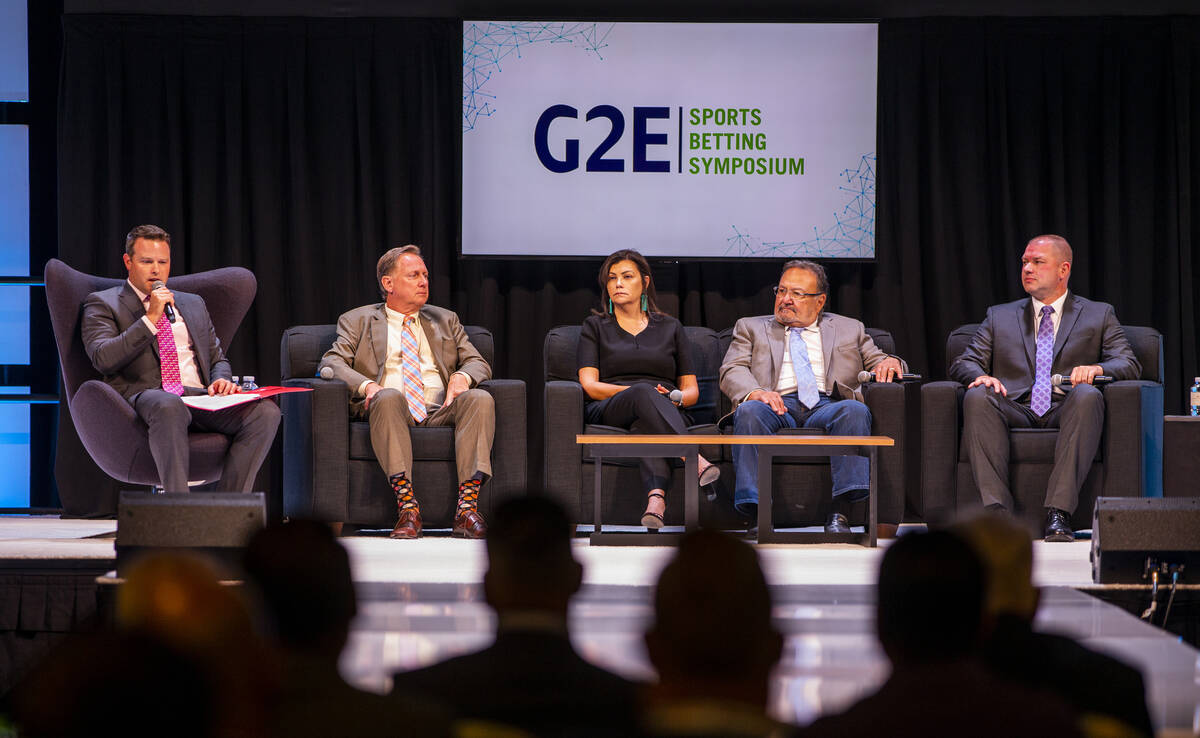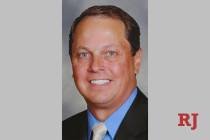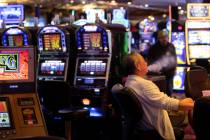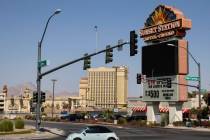Cracking down on offshore sportsbooks easier said than done
The law is clear: Offshore sportsbooks operate illegally in the U.S.
That was the case before the U.S. Supreme Court allowed the expansion of sports betting to other states beyond Nevada in 2018, and it has been the case since.
Yet offshore sportsbooks still take bets from Americans every day. Turns out, the law doesn’t mean much without law enforcement.
Some members of Congress want to change that. A recent letter to U.S. Attorney General Merrick Garland — signed by the entire Nevada delegation in the House of Representatives — urged the Department of Justice to finally devote the time and money to wipe offshore sportsbooks off the playing field.
The American Gaming Association, which supported the letter and represents legal U.S. sportsbook operators, is optimistic that action will be taken, but other gaming insiders say any eulogies for offshore sportsbooks are premature.
Bets on this outcome won’t be decided anytime soon.
Chris Cylke, senior vice president of government relations for the AGA, said, “We know this is going to be a long process.”
“Our view is that the squeaky wheel gets the grease, and so by continuing to beat the drum on this, we’re more likely to see some kind of action,” he said.
Letter makes case
U.S. Reps. Dina Titus, D-Nev., and Guy Reschenthaler, R-Pa., the co-chairs of the Congressional Gaming Caucus, sent the letter to Garland on June 29, along with 26 co-signers, including Nevada Democrats Steven Horsford and Susie Lee and Republican Mark Amodei.
The AGA and some major sports leagues — the NFL, MLB, NHL and PGA Tour — also endorsed the letter.
“These predatory operations expose our constituents to financial and cyber vulnerabilities; do not have protocols to address money laundering, sports integrity, or age restrictions; and undermine states’ efforts to capture much needed tax revenue through legal sports betting channels,” the letter reads.
The AGA said $57 billion was wagered at legal U.S. sportsbooks last year, but that is still only a little more than a third of the $150 billion the AGA estimates was bet illegally each year before the Supreme Court ruling, Cylke said.
Legal sports betting is now available in 35 states and Washington, D.C., and operators are rightly wondering about why they have to compete against offshore sportsbooks who didn’t have to pony up millions in licensing fees, Cylke said.
“Why is it that my app or website has to compete right alongside those who aren’t doing any of these things and didn’t lift a finger in order to open up this marketplace?” he said.
Arrests difficult
Of course, even if the Department of Justice decided to go after offshore sportsbooks, the case wouldn’t be an easy one to make.
Anthony Cabot, a distinguished fellow in gaming law at UNLV’s William S. Boyd School of Law, notes that making a physical arrest of a suspect might be impossible.
“A lot of these countries won’t recognize a request for extradition,” he said.
In the past, arrests in similar cases came when offshore operators were picked up on flights into the U.S., Cabot said.
But the DOJ still has plenty of weapons at its disposal, he said. One option is to go after an offshore sportsbook’s intermediaries who are within reach in the U.S., such as payment processors. Officials can also go after entities who accept advertising from the offshores, Cabot said.
Another option is seizure of a website’s domain name, a weapon that the DOJ deployed on the so-called “Black Friday” for illegal online poker sites in 2011. In that case, the DOJ took over the websites for the targeted poker sites, preventing customers from logging in.
That’s a very difficult problem for offshores to overcome, Cabot said.
“You can try to play cat and dog by changing domain names, but that’s really disruptive to the business,” he said.
Bad actors
The letter to Garland cited three offshore sportsbooks by name: BetOnline, Bovada and MyBookie.
Jack Andrews, a sports bettor and a founder of Unabated.com, a website that provides tools and resources for sports bettors, said he wasn’t surprised to see those sportsbooks listed.
“They’ve been the three that have tried the hardest to infiltrate the U.S. subversively through guerrilla advertising,” he said.
Essentially, they just pretend that they’re legal in the U.S. and still place ads to entice American customers, Andrews said. In Bovada’s case, it uses the domain name Bovada.lv, with many customers interpreting “lv” as Las Vegas instead of Latvia.
Andrews said he has laughed at sports betting media articles over the years that have said, “Here’s the line from Bovada on the Las Vegas Strip.”
Cylke agreed that bettor education was a problem, with some customers not even realizing the sportsbook they were using operates illegally. He cited surveys that showed 74 percent of bettors said that it’s important to bet legally but yet 52 percent of them bet with offshore sportsbooks.
The Garland letter said, “Internet searches nationwide for offshore sportsbooks increased by almost 40 percent in 2021, outpacing searches for legal ones, with Bovada constituting half of all sportsbook brand searches.”
A spokesman for BetOnline declined a request for comment. Media contacts for Bovada and MyBookie did not respond to questions.
Why play offshore?
Andrews said there are many reasons why bettors might stay loyal to offshore sportsbooks. Many books allow users to play on credit and settle up after a certain period of time instead of putting up the money up front. That is certainly appealing to some bettors but is not a paragon of “responsible gaming” that legal operators should emulate, he said.
The main reason some big bettors are forced to play offshore is that legal sportsbooks will not take the amount of money they want to wager, Andrews said. The biggest legal sportsbooks in the U.S. deploy what Andrews calls the “soft book” model.
“And that is that sports betting should just be for recreational use, and anyone who bets seriously is not a customer that they desire,” he said.
Andrews said bettors who show they could be long-term winning players are quickly limited, sometimes to “sub-one-dollar” levels.
“I’ve been reduced to $12 on the Super Bowl coin flip,” he said.
Instead of seeking legal remedies, sportsbooks would be better off improving their product so that they could pull back some of the money that now goes offshore, he said.
‘Dancing the Silly Dance’
For one gaming insider, the letter and all the discussion it has created in the gambling world is moot. Nothing is going to change.
Richard Schuetz has just about seen it all in his long career, which has included stints as the vice president of casino operations at the Stardust, president and CEO of the Stratosphere and California gambling control commissioner.
He recently wrote an opinion article about the offshore sportsbook letter for Global Gaming Business News called “Dancing the Silly Dance.” In short, stakeholders are just appearing to be busy for their constituents.
Actions like the letter “are oftentimes a valuable tool before elections to remind certain companies that these politicians are on the job for them and deserve a political contribution or two,” Schuetz wrote. “The lobbyist folks like to run with such campaigns for it keeps them top of mind with the people who pay their bills and gives the impression they are doing something.”
He notes that pharmaceutical companies have complained for years about the availability of prescription drugs from foreign countries targeted at U.S. consumers, but those providers still proliferate.
Andrews agreed with Schuetz.
“If Big Pharma is not big enough to move the DOJ, then the casino industry is not going to be able to move them either,” he said. “… It’s just not a high-priority issue, and I think the public would agree with that.”
The letter asks for a response from Garland by Sept. 6.
Contact Jim Barnes at jbarnes@reviewjournal.com. Follow @JimBarnesLV on Twitter.



























